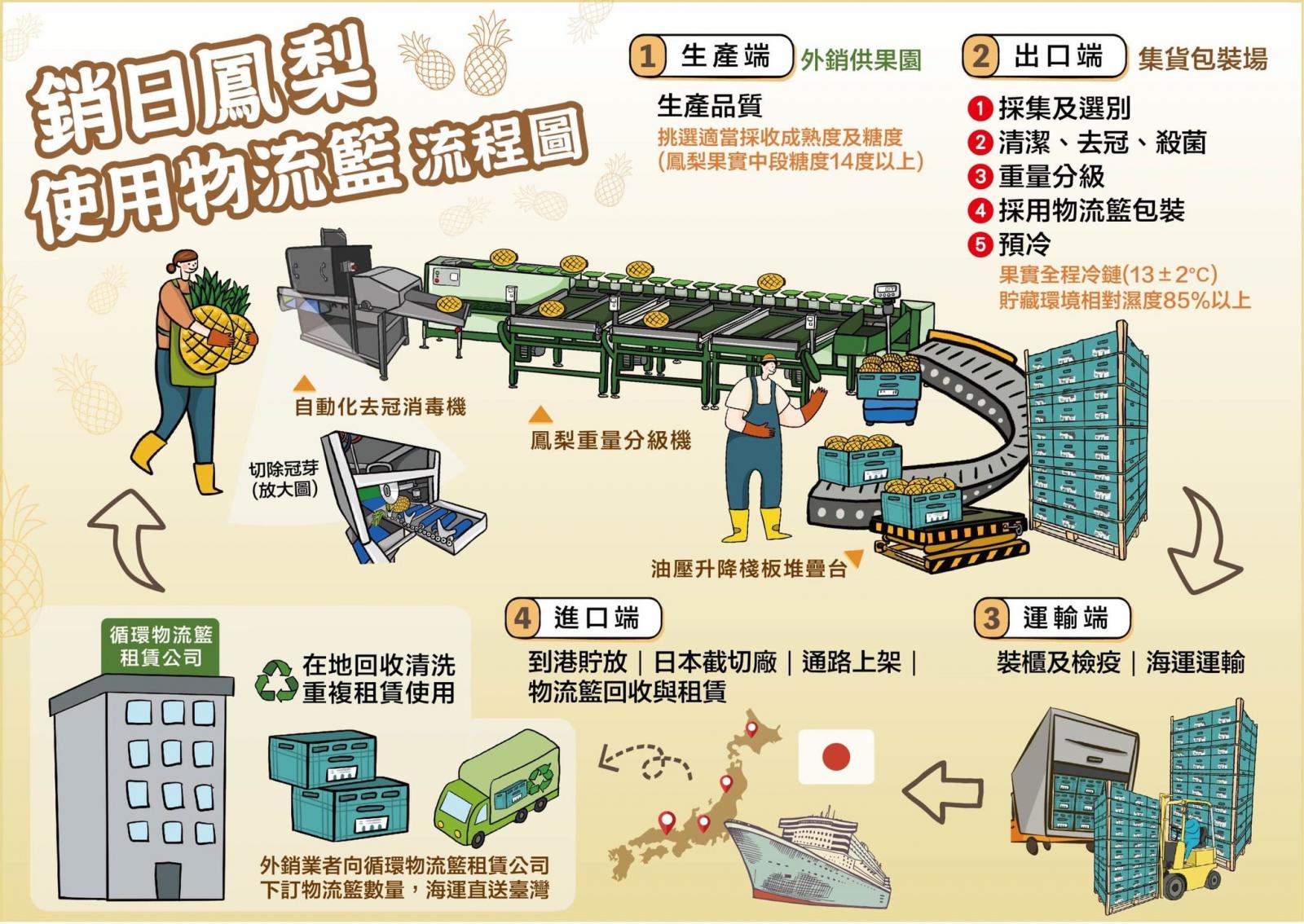News
Using reusable shipping baskets to export pineapples to Japan, creating new commercial opportunities for the sale of cut-up pineapple from Taiwan
On April 20, 2022, Council of Agriculture (COA) Minister Chen Chi-chung presided over a press conference in Chiayi on the subject of reusable shipping baskets for the sale of pineapples to Japan. Accompanied by Chiayi County Magistrate Weng Chang-liang, he witnessed Taiwanese and Japanese businesses working together to use reusable shipping baskets. With these baskets, decrowned Golden Diamond pineapples can be sold directly to Japanese processing plants where they will be cut up for sale in chain supermarkets, thereby conforming to the purchasing habits of Japanese consumers. This will make it possible for even more Japanese consumers to enjoy the great taste of Taiwanese pineapple.
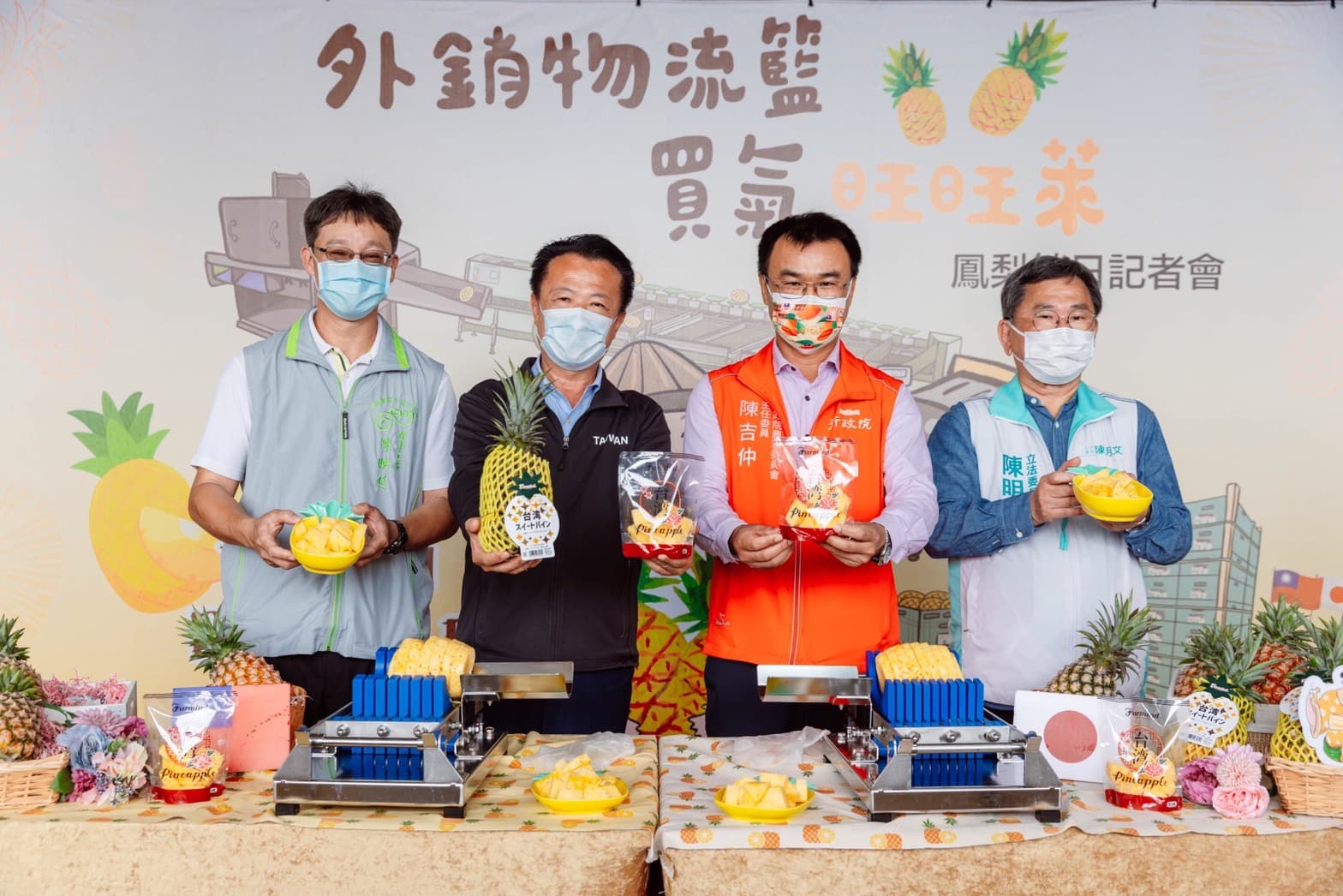
In response to mainland China’s temporary ban on imports of pineapples from Taiwan, the COA adopted measures to promote domestic sales, processing, and overseas sales of pineapples. Last year, 28,000 metric tons of pineapples in total were exported, of which 18,000 metric tons went to Japan. These measures stabilized the price of pineapples at the farm gate and ensured farmers’ incomes. The COA has set the export target for this year at 30,000 metric tons, and as of April 17 exports have already reached 14,065 metric tons. Most of this amount has been sold to the Japanese market, indicating the great appreciation of Japanese consumers for Taiwanese pineapple.
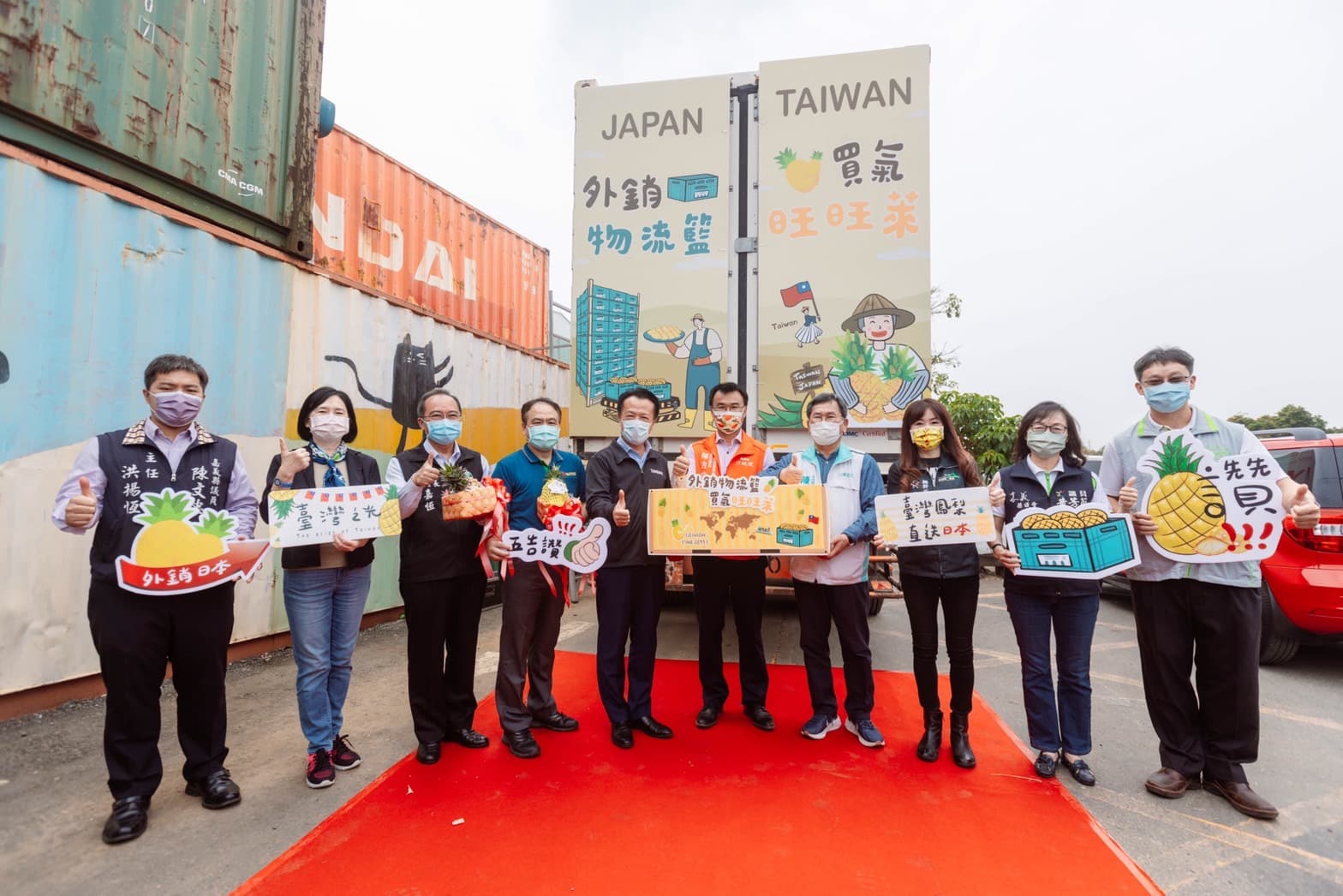
Because the COVID-19 pandemic has led to a shortage of cardboard boxes and increased production costs, businesses in Taiwan and Japan worked together to adopt reusable shipping baskets, which conform to international fresh fruit transport standards, to package decrowned pineapples. These pineapples are cut up immediately after arriving in Japan, not only ensuring the outstanding quality of Taiwan pineapples and conforming to the buying habits of Japanese consumers, but also reducing the costs of packaging materials and disposal of waste pineapple crowns. In this way, pineapple businesses are acting in accordance with the global trend toward recycling and reuse of materials and reduction of waste.
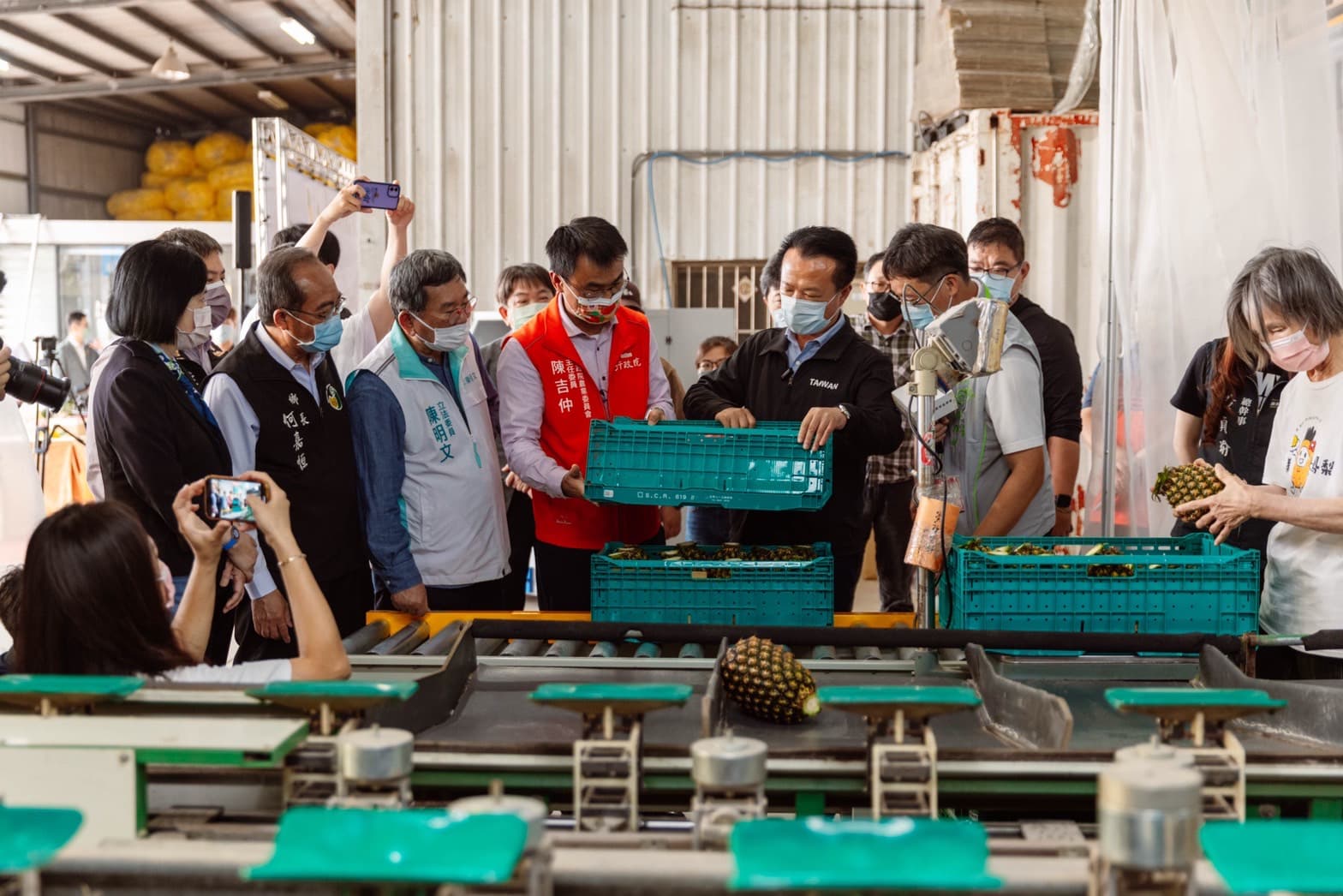
With traditional cardboard boxes, when pallets are used in 40-foot shipping containers for seaborne exports, each container can hold about 1,365 boxes, or about 14 metric tons, of crowned pineapples. However, with reusable shipping baskets, each container can hold about 1,000 baskets, or about 17 metric tons, of decrowned pineapples. This reduces packaging costs by 15%. In addition, by using automated pineapple decrowning and sterilization machines to conduct sterilization and treatment of defects, and through the use of comprehensive cold chain shipping by transnational logistics firms, pineapples can be sent directly to processing plants for cutting up after arriving in Japan. The shipping baskets can then be recovered, washed, and sent directly to Taiwanese packaging plants by a Japanese shipping basket rental company. After the pineapples are cut up, the resulting products can be sold in major Japanese chain supermarkets, creating new commercial opportunities for sales of Taiwanese pineapples in Japan.
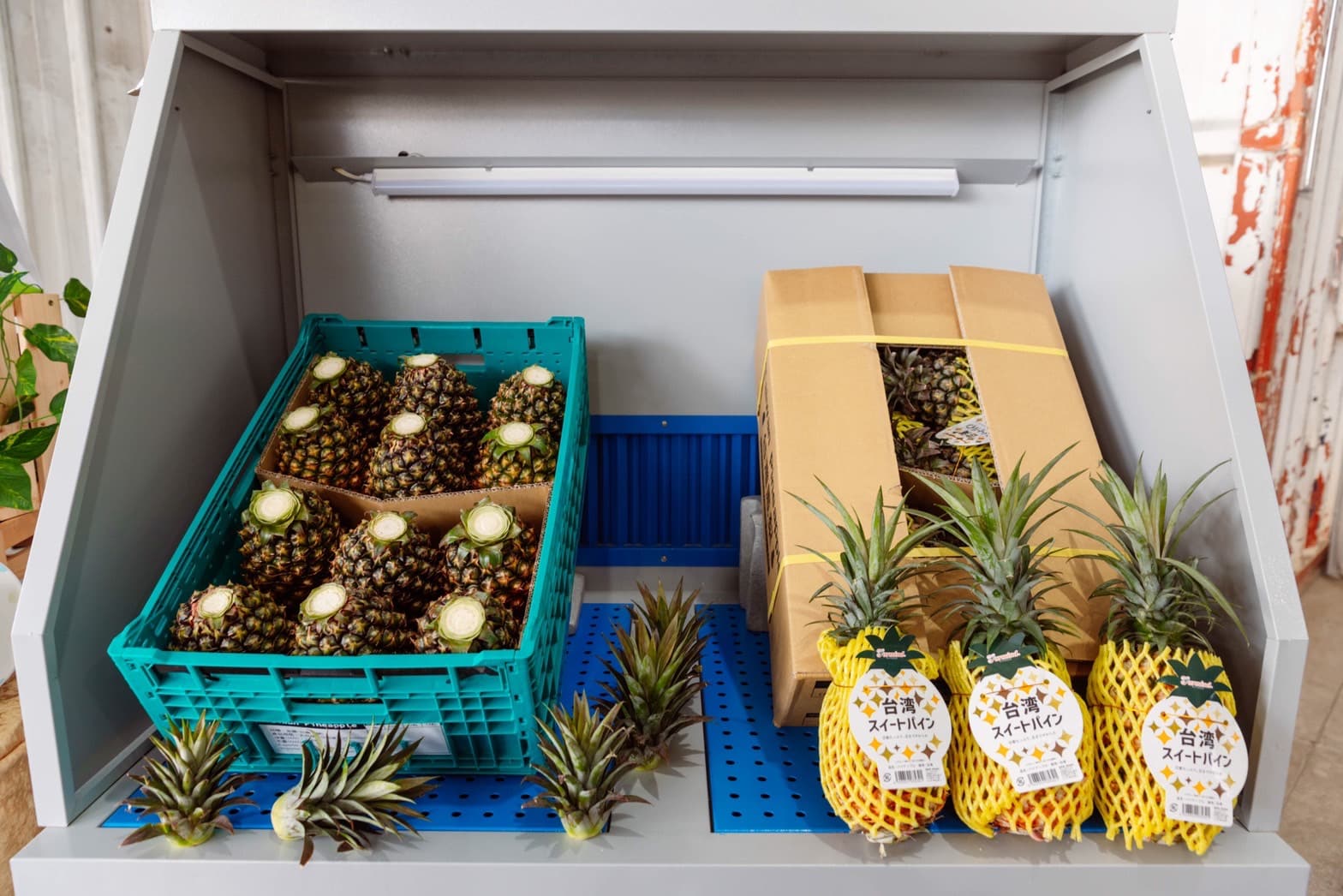
The COA points out that recently the quality of Golden Diamond pineapples exported to Japan has been affected by inconsistency in shipping times and Japan’s increase in the percentage of pineapples being tested for fumigation. The COA has pro-actively guided farmers to strengthen in-the-field management of this fruit and assisted packaging centers to improve cleanliness and isolation in packaging operations areas. It is also happy to see Taiwanese and Japanese businesses working together to promote cut-up pineapple products, which can be sold in major Japanese chain supermarkets. In this way, consumers can be provided with more convenient and high-quality pineapple products.
